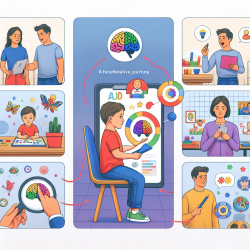Introduction: A New Era in ADHD Assessment
In the realm of child development and mental health, Attention Deficit/Hyperactivity Disorder (ADHD) is a significant concern. With an estimated worldwide prevalence of 5.3%, ADHD affects individuals across various life domains, leading to challenges in education, employment, and social interactions. The recent development of ICF Core Sets for ADHD offers a groundbreaking approach to understanding and assessing these challenges, promising to revolutionize both research and clinical practice.
The ICF Framework: A Comprehensive Approach
The International Classification of Functioning, Disability and Health (ICF) provides a universally accepted framework for describing health and functioning. Unlike traditional diagnostic tools that focus solely on symptoms, the ICF emphasizes a holistic view, considering body functions, activities, participation, environmental, and personal factors. This comprehensive approach allows for a more nuanced understanding of how ADHD impacts an individual's life.
ICF Core Sets for ADHD: What Practitioners Need to Know
The development of ICF Core Sets for ADHD represents a significant advancement in the standardization of functional assessments. These Core Sets are designed to capture the most relevant aspects of functioning affected by ADHD, providing a common language for clinicians and researchers worldwide. By integrating evidence from systematic reviews, expert surveys, qualitative studies, and clinical observations, the ICF Core Sets offer a robust tool for assessing ADHD across the lifespan.
How Practitioners Can Implement ICF Core Sets
For practitioners, the ICF Core Sets for ADHD can be a valuable resource in several ways:
- Comprehensive Assessment: Use the Core Sets to conduct thorough assessments that consider the full spectrum of an individual's functioning, beyond just symptomatology.
- Interdisciplinary Collaboration: The standardized language and categories facilitate communication and collaboration across disciplines, enhancing the effectiveness of multidisciplinary teams.
- Tailored Interventions: By understanding the specific functional challenges faced by individuals with ADHD, practitioners can develop more targeted and effective intervention plans.
- Outcome Measurement: The Core Sets provide a framework for evaluating the impact of interventions, allowing practitioners to track progress and adjust strategies as needed.
Encouraging Further Research
While the ICF Core Sets for ADHD offer a promising tool for practitioners, they also highlight the need for continued research. Understanding the nuances of how ADHD affects functioning across different contexts and cultures is crucial for refining these tools and ensuring their universal applicability. Practitioners are encouraged to contribute to this growing body of knowledge by sharing their experiences and insights from using the ICF Core Sets in practice.
Conclusion: A Call to Action
The development of ICF Core Sets for ADHD marks a pivotal moment in the assessment and treatment of this complex disorder. By adopting these tools, practitioners can enhance their understanding of ADHD, improve their clinical practice, and ultimately, create better outcomes for children and adults alike. As we continue to explore the potential of the ICF framework, the possibilities for improving the lives of those affected by ADHD are boundless.
To read the original research paper, please follow this link: Development of ICF Core Sets to standardize assessment of functioning and impairment in ADHD: the path ahead.










